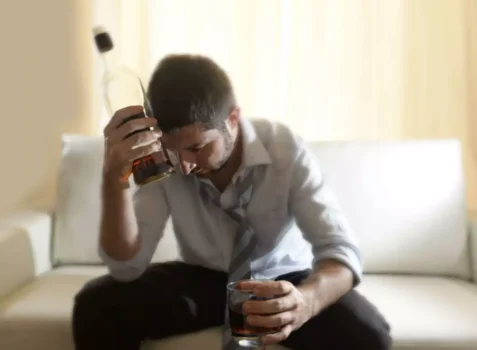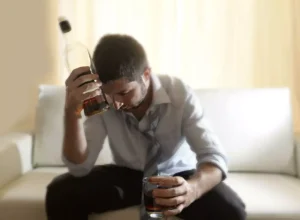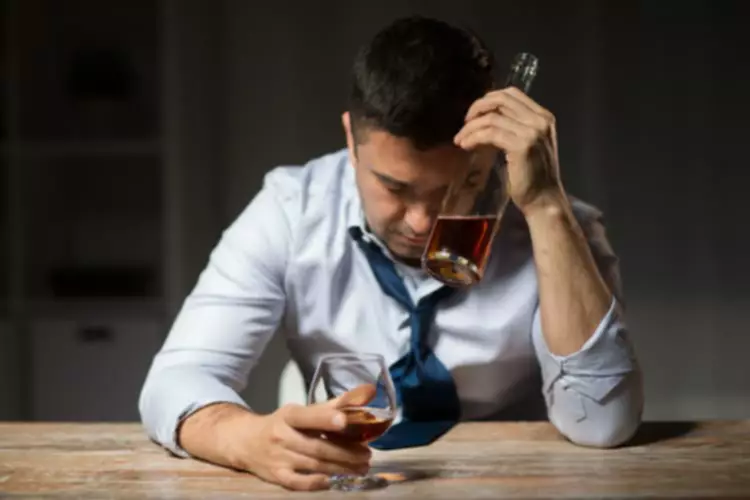
However, it can still be common for a pregnant woman to experience depression. People diagnosed with OCD frequently find themselves in a loop of obsessions and compulsions. If you have these behaviors, you may feel isolated because of them.
Alcohol and Depression: The Link Between Alcoholism and Depression

But once you’ve experienced a depressive episode, you may be better prepared to prevent a future episode by learning which lifestyle changes and treatments are helpful. The combination of the two conditions is particularly dangerous. That’s because someone with depressive psychosis may experience delusions that cause them to have thoughts of suicide or to take unusual risks. Their compulsive behaviors, which may be first developing at a young age, can make them feel unusual.

Symptoms
According to the National Institute on Alcohol Abuse and Alcoholism, moderate drinking means one drink per day for women and two drinks per day for men. You might feel a little unwell physically, but as long as the room doesn’t spin when you stand up, try to get outside for a short walk — or a longer one, if you can manage it. Instead, remind yourself you can do things differently next time. Then, try distracting yourself to help take your mind off how you feel. As a result, any troubles you’re facing, from work stress to relationship issues, may get worse. Since alcohol can cloud your brain, it can keep you from seeing helpful solutions to problems.

More on Substance Abuse and Addiction

Psychotherapy has been shown to be an effective treatment in improving symptoms in people with depression and other psychiatric disorders. You may find help with mediation or different therapies, such as cognitive behavior therapy. It’s important to seek professional help if you’re feeling major depression. Depression is different to anxiety (a feeling of worry or fear about what might happen, inability to concentrate and – for some people – panic attacks).
Changing your drinking
It often feels very tempting (and easy) to keep drinking until you feel better, especially when you have less access than usual to more helpful coping methods. If you already feel a little low, giving yourself a hard time for overdoing the alcohol probably won’t improve matters. If you tend to rely on alcohol to ease anxiety in social situations, for example, you might never address the underlying causes does drinking make your depression worse of your discomfort.
- Increased anger might lead you to pick a fight with a loved one, for example, while extreme sadness or self-loathing could lead to intense depression symptoms.
- It is a common disorder after pregnancy, affecting 1 in 9 new parents.
- For some people alcohol can be a trigger for suicidal thoughts too.
- You may successfully manage symptoms with one form of treatment, or you may find that a combination of treatments works best.
Dual Diagnosis: Why Substance Misuse Worsens Your Mental Health
But when the effects of the alcohol wear off, you can feel worse than you did before. Several types of supplements may have some positive effect on depression symptoms. Take care to discuss any new supplements you may be taking with your healthcare team, as some supplements can have significant side effects or interact with medication. These options include electroconvulsive therapy (ECT) or repetitive transcranial magnetic stimulation (rTMS) to treat depression and improve your mood.
- If you feel unable to keep yourself safe or think you might harm yourself it’s a mental health emergency.
- This article covers everything you need to know about the connection between alcohol and depression.
- It is important to note that medications for alcohol use disorder are a first-line treatment.
Depression symptoms
Additionally, substances cause impairment which interferes with the healing process, particularly being a distraction when a patient is involved in therapy. This intersection, according to psychiatrist Akhil Anand, MD, is called dual diagnosis or co-occurrence. Alcohol is known to affect several nerve-chemical systems which are important in regulating mood.
- It’s not about being in a bad mood, and people who experience depression can’t just snap out of it.
- If you do this, you may be at risk of deepening the feelings of depression.
- After getting sober, Kitley’s cravings for alcohol continued for about a year — particularly during stressful or challenging times.
- However, Foldvary-Schaefer explained that sleep disturbances more often occur in the spring when we add an hour of sleep loss to a chronically sleep-deprived state.
- And even in some cases, have thoughts of not wanting to live.
- These drugs can treat depression by increasing the levels of dopamine and noradrenaline in your brain.
How are they treated?
In some cases, you may receive a dual diagnosis of a major depressive disorder (MDD) and an alcohol use disorder (AUD). This co-occurring disorder isn’t uncommon, but it can be difficult to treat. If you’ve lost control over your drinking or you misuse drugs, get help before your problems get worse and are harder to treat. Seeing a mental health professional right away is very important if you also have symptoms of bipolar disorder or another mental health condition. If you have bipolar disorder and alcohol use disorder or another addiction, you have what’s known as a dual diagnosis.
Light therapy
You may successfully manage symptoms with one form of treatment, or you may find that a combination of treatments works best. The symptoms of depression can be experienced differently among males, females, teens, and children. Depression is considered a serious medical condition that can get worse without proper treatment. People with depression may be at more risk of developing challenges with alcohol, especially if they drink to relieve their depression.


